Badass Beverages shut up shop
Popular start-up brand exits industry. Twofold to launch first beer brewed on-premise at new brewpub. New Zealand's best value beer festival. Have health authorities got it wrong on alcohol?
Welcome to another round of Friday Night Beers, your weekly wrap of everything you need to know about beer, and some things you didn’t know you needed to know!
We start this week with the decision by Badass Beverages to exit the beer business.
On face value it’s a sad day because Badass did some cool things — and they were good people too. But, as co-founder Dave Pearce told me this week, he’s not “sad” it’s over, and he makes some pertinent observations about the beer industry in this “exit” interview.
For those who don’t know Dave, he was formerly with Lion where he was GM of craft. When he left Lion, he had a notebook of great beer ideas and Badass was the vehicle for their implementation. His co-founders are Lisa Harrison and Devin Fennell.
The brand is now for sale and Dave says there are plenty of ways it can work for the right person.
“We’ve made the hard, but correct, call to wind things up over the next couple of months. We’re really proud of having given it a go, and of the beers and brand we created, but in the current market at our scale and with our business model, it’s just not viable to keep going – and we don’t have the money, time, or energy to make any major changes.
“We reckon there’s potential for someone to make a go of Badass Beverages with a different operating model, with at least one of brewing, logistics, or sales in-house. We think it would suit either someone entering the industry with a brewpub or small production model, an established brewery looking to bolt on an additional brand, or a contract brewing/logistics/sales company looking to move into brand ownership.
“We’d be open to a sale of the business as a going concern, a sale of the IP of the whole business, a sale of the IP of individual brands, licencing arrangements, or other options. We’d also be happy to stay involved in some capacity if a new owner wished.
“We’re very realistic on expectations of what the business is worth —essentially just the intellectual property of the Badass Beverages name and the sub-brands, designs, and recipes. But with a different model that takes out some of the costs that have killed us, I definitely think beers like Hefe Metal, Disko Inferno, and Sloth (especially in its cool new 4-pack, at a cheaper RRP than we could afford to get to) could have a happy future in the market.”
I’m going to round back on some more observations from Dave about the state of the industry but I thought I’d pause here and reflect on what fine beers Badass did produce.
Hefe Metal won a trophy at the New Zealand Beer Awards in 2022 and Dave said that was a thrill for him and his recipe designer Alex Biederman.
“That’s 100 percent the best moment of it all. It was particularly gratifying for Alex because it’s a beer that’s dear to his heart, being from Bavaria, and satisfying for Craft Brewing Co, as it’s the first trophy they won as a contract brewer.
“In a few years’ time I’ll tell my grandkids, ‘we had a brewery once and we won a trophy’ — that’s more important to me … and that’s why I’m not sad, we did it in a way I’m proud of and it was OK and we gave it a go.”
Which brings us to …
Beer of the Week No 1
Sloth, which comes in a cute four-pack of 330ml cans, is Badass Beverages’ sign-off batch.
It’s a Kölsch-style, with Kölsch being the iconic beer style of Cologne in Germany. What defines Kölsch — in a nutshell — is that it’s an ale impersonating a lager! It’s fermented with ale yeast but lagered (or stored) like a typical German lager. A Kölsch is all about a crisp, dry malt base in harmony with traditional European hops that deliver spicy-flowery-citrus notes.
Sloth is impeccably balanced – the dry malt base and tangy hops are in flush alignment, resulting in an elegant, aromatic, flavourful beer that gently caresses your palate rather than assailing it as a normal pale ale might. Bright gold, refreshing, crisp, clean and delicately delicious, it’s a great Sunday afternoon beer.
I do love these clean, easy-drinking styles (this one is just 4% ABV) and there’s a reason they’ve lasted hundreds of years. If you’re looking for a slap of hops across your chops, this won’t do that for you. But it is a very satisfying beer if you pause to take it all in.
You can find your four-pack of Sloth at select New World stores, your home of craft beer.
Twofold brewery up and running
One for Aucklanders (or maybe it’s worth a visit for out-of-towners?) — the long-awaited first beer brewed by Bernard Neate on-premise at Twofold in Parnell is out next week.
It might even be the first beer brewed in Parnell … I’m not 100 percent sure of that, but my research over the years hasn’t turned up any historic breweries in the suburb.
It’s been a long, painful process to get the brewery up and running almost six months after the brewpub opened in April, but it sounds like it’s worth the wait.
FO’G — Fresh Out (the) Gate — is an 8% “hoppy ale” (they are avoiding the term hazy!) brewed with oats and wheat and low-colour lager malt.
Bittered with a super sticky lot of Citra from the most recent US harvest and whirlpooled with the new ultra-flowable Citra hop extract from Yakima Chief (unexcitingly called 702).
With a classic Citra and Nelson Sauvin dry hop, Bernard’s tasting notes say it should taste of “summer sun-ripened peaches, salty tinned guava, lime juice and pink grapefruit pith”.
The beer will be launched next Thursday, September 19.
Badass out but not down, part 2
I had such a good conversation with Dave Pearce of Badass that I wanted to share a little more here, in this case, his reflections on the state of the beer economy and what can and might work for others.
The main problem for Badass is that they entered the industry “at the worst possible time — in the middle of the pandemic and before the economy fell to bits and then with a whole lot of other cultural-social beverage trends probably going in the wrong direction for craft beer — the move to people drinking less, RTDs getting interesting again and spirits having a moment. It was unfavourable in hindsight.”
And that is as a good a summary of the broad trajectory as any.
Their contract brewing model could have worked, but the rampant inflation of the past two to three years meant any fiscal planning was proved optimistic.
“Most elements of our business model cost slightly more than my initial business plan and those costs went up more than I thought they would.”
And on the revenue side, he acknowledged he was more “aggressive than the way it played out.
“The cost of freight and storing beer went up a shit-ton in three years. All ingredients, particularly anything imported from Europe, went up ridiculously over that period. It wasn’t one specific thing but a combination of 10 things not quite working.”
In another reflection of modern times, he said they could make money selling 440ml cans, admittedly on lower volumes, but that keg sales were a “break even" and what didn’t work for them was multi-packs. “We couldn’t make money at the price point where people would buy.”
And this is a point I’ve talked about before: the four-, six- and 12-pack market will increasingly become the domain of bigger breweries who can do the volumes at the right price with those single 440ml sales the icing. For smaller breweries, it’s going to be singles and on-premise sales, preferably at your own brewpub with a local/regional customer base.
Dave also believes a co-op or collective model remains a possible answer for struggling smaller brands.
“Lots of people in the industry — and I was one of them — were hoping for some kind of magical solution like co-op or collective or a joining of forces but that kind of rabbit didn’t pop out of the hat.”
On the upside, the contract brewing model allowed them to launch a business “that was de-risked with low fixed assets.” It was a side hustle rather than a day job.
“We knew that if we couldn’t make it work, we’d still be able to feed our kids, which is an interesting question in itself because it doesn’t make you hustle as hard … there are lots of bad things happening in the industry that’s having a real impact people’s livelihoods and families.”
The other thing Badass tried to do was hit a niche with reimagined German styles. Was it a good idea?
“I think it was. We were like, here’s a bunch of cool styles that we love but hardly anyone does them. Realistically, that limits your appeal because some people aren’t interested in those styles, don’t know what they’re about, or find them a bit scary.
“But rather than being the 199th brewery in New Zealand to put out a hazy, it feels slightly more adventurous to have done those styles. And we tried to do it in a fun way, with the packaging and branding, to present them to people differently.
“Sloth, our Kölsch was the one most likely to accidentally get massive.”
He pointed out that the massively successful Little Creatures beer, Furphy, is a Kölsch. “They don’t tell you it is, but it is.
“Kölsch fits in trends around low alcohol but flavourful and interesting. Of the packaging, brands and stories we did, that’s the one I like the most which is why we tried to make it work in a 4-pack. There was an outside chance a Kölsch in a 4-pack could have worked but it didn’t. We liked the fact we were doing something that felt different. We were proud to have a crack. We couldn’t play a volume game and we couldn’t out-hazy anyone so we needed an angle that was slightly different.”
So, if you love classic German styles, cool branding and you want to get into the beer business, get in touch with me and I’ll hook you up with Dave.
NZ’s best-value beer fest
If you’re looking for something to do later this month that’s a little bit different, how about heading to New Plymouth for the Mountain Ales festival.
Hosted at the New Plymouth Sportfishing and Underwater Club in New Plymouth, Mountain Ales is organised by a small group of local guys keen on craft beer.
It is a small event, 250 tickets max and for those who just want beer and nothing extraneous I’m told by the organising crew that Mountain Ales is proudly “only about beer and cider — no live band, no games”.
There will be around 25 beers being poured from eight breweries and four ciders, so it’s a tight, try-everything kind of line-up.
The focus is on local breweries so you’ll get sweet drops from Shining Peak, Three Sisters, Theoretical Brewer, Ruapehu Brewing, Roots Brewing (Whanganui) as well as visitors from Wellington (Mean Doses) and the Bay of Plenty (Lumberjack and Mount Brewing).
Tickets are $60 and that includes entry, 4 x 250ml serves and a $10 food voucher so it could actually be the best-value beer festival in New Zealand.
Beer of the Week No 2
I adore a great concept in beer and Canyon Brewing’s newly-released To Central With Love is a cool idea backed by an extremely good beer.
Just describing the process of making this beer is enough for me to fall for it: a barrel-aged wild ale made with Queenstown-grown malt, Garston hops, organic pinot noir grapes and a wild yeast cultivated from local thyme flowers. Honestly, it was the thyme flower wild yeast that won me over!
The beer was then aged in oak for 13 months before being re-fermented on the grape pomace (the aftermath of grapes having been crushed for wine).
The result? Unbelievably good. It’s like drinking a pinot noir radler/shandy .. ie your pinot is diluted with a beer, if that makes sense.
Big Ribena, plum and blackberry notes, a hint of vanilla and an earthy-herbal quality that wafts underneath the bright fruits and brings a layer of complexity. 💘
Have health authorities lost their way with alcohol?
This is a year of introspection about alcohol consumption. In the 14 years I’ve been writing about beer nothing compares to 2024 for the sheer coverage of the “safe amount of alcohol”.
A lot of the science behind some of the most dogmatic positions is flimsy but on the flipside there’s also questionable conclusions from research around the benefits of alcohol.
In short, it’s hard to disentangle alcohol consumption from life in general — so many other factors come into play when considering “risk” from alcohol consumption and a lot of them are factors at play around our wider health: socio-economic history, education, fitness, emotional wellbeing, wider diet, etc.
But I found an article this week that did the best job at trying to clear the somewhat muddy waters around alcohol research. It’s an extremely deep dive from a wine writer with a biological sciences background and it’s very data-driven.
Has the WHO lost its way regarding alcohol? | JancisRobinson.com
Tim’s Beer of the Week
This year is turning into the ‘year of the bright IPA’ with phenomenal releases rolling out one after the other, many of them in super affordable multi-packs too. Atlanta Bright IPA is the latest, from Auckland’s Urbanaut. Powered by the classic trio of Nelson Sauvin, Riwaka and Motueka, Atlanta delivers an ultra-clean and crisp aroma of lemon and lime citrus, buoyed by a touch of passionfruit bounce. Compact and focused on the palate, with a finely balanced bitterness and near absolute purity. It's an exceptional IPA, and it does it all with only 4.6% ABV. At that strength, Atlanta could rightfully be called a session beer, and luckily too, as this is one of the most devastatingly smashable drops I’ve tasted all year. — Tim Newman
Post-modern beer puts styles aside
In writing about “Swifty” last week, and its nostalgic hat-tip to a pre-craft idea of beer, plus the fact there’s nothing on the can about style or flavour — just “refreshing beer” — reminded me of the following story by Courtney Iseman about “post-modern beer”.
Selling flavours, moods and occasions is more accessible to a wider audience than speaking only to those who know what Riwaka hops taste like, or what exactly a saison even is. It also frees brewers up — if they don’t have to list an exact style with its characteristic ingredients on the label, they don’t have to brew it exactly according to that blueprint, either.
Why Craft Beer Brewers Started Making “Postmodern” Beers | PUNCH (punchdrink.com)
Dusty’s Beer of the Week
Farm Hand is a 5.2% foraged elderflower saison from Queenstown’s Canyon Brewing, utilising everything local — from malt to the brewery’s beehive, to elderflower on the nearby hills. Throw in a heavy hand of Garston-grown Motueka hops and you have a stunning, vibrant saison with abundant notes of lemon, honey, floral, spice, and banana. It's funky yet refreshing and layered beautifully — a perfect spring drop. — Dusty
Does local matter?
The two Canyon beers reviewed here this week (pure coincidence) speak to the very concept of local.
The story linked below is a long and quite-involved piece from Dave Infante about what it means for a craft brewery to be “local”.
It’s a big story in terms of its ideas and scope, and does get a little unwieldy in places, but the thrust of it is well-defined: What does local mean? How important is provenance to the definition of craft? Does it matter where your beer is physically brewed?
Craft Beer Can’t Afford to Be Local Anymore. Does It Need to Be? | VinePair
Beer of the Week No 3
I think of Parrotdog Falcon APA as a kind of prodigal child … I was trying to think of a better metaphor, but this one holds true in the sense that there’s often a long gap between Falcons for me but every time I have one, I have this joyous little celebration going on.
Part of the reason I don’t get to have it as often as I’d like is that this “job” of mine requires me to try so many other beers … and my liver only has so much capacity!
So I have a handful of much-loved beers — and McLeod’s Longboarder is a beer that falls into a similar camp — that I’d like to drink more often.
With Falcon, I love the whiff of dank, cigar-like aromas that come out of the glass first, followed by some pine and lime. The malt base is sleek and the minerality is perfect. At 5.4% ABV, it’s in a good spot too. In a 12-pack for $43 it represents pretty good value and it’s just the sort of fridge-filling option I’d go for if I didn’t have to try a new beer every other day!
Right, that’s me for another week. Enjoy whatever it is you’re drinking this weekend.
Michael


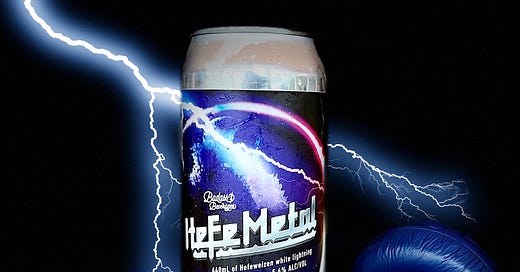


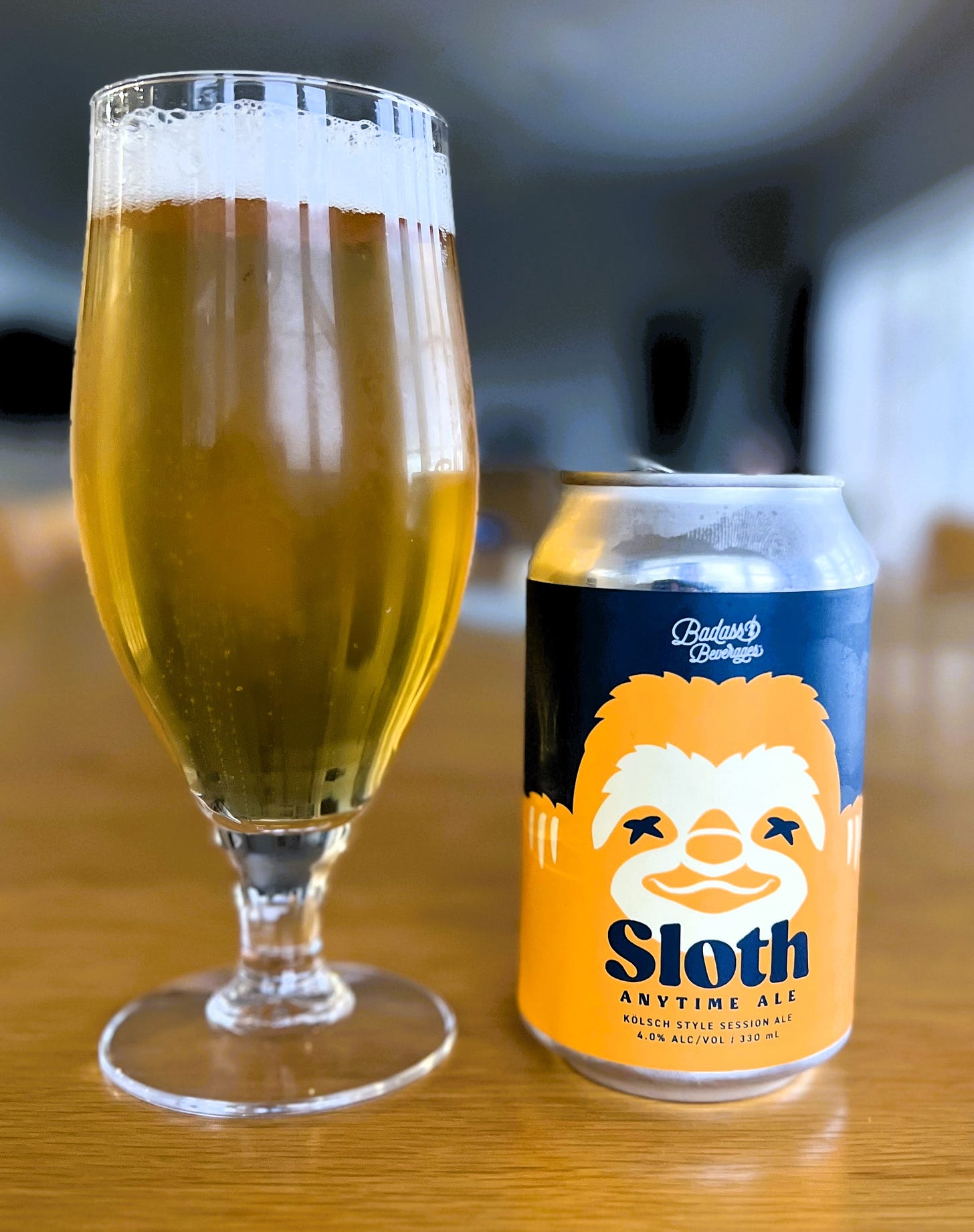

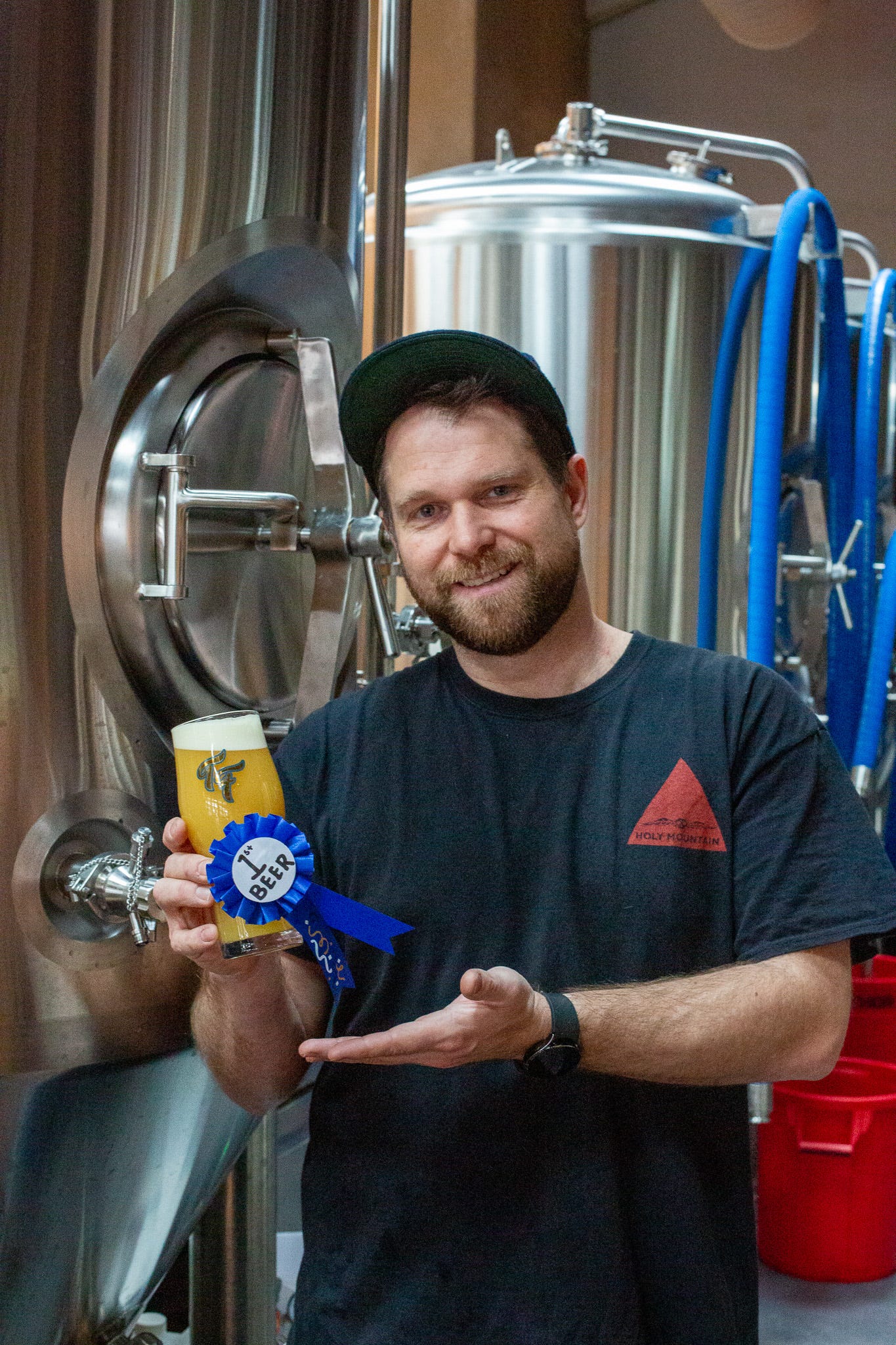
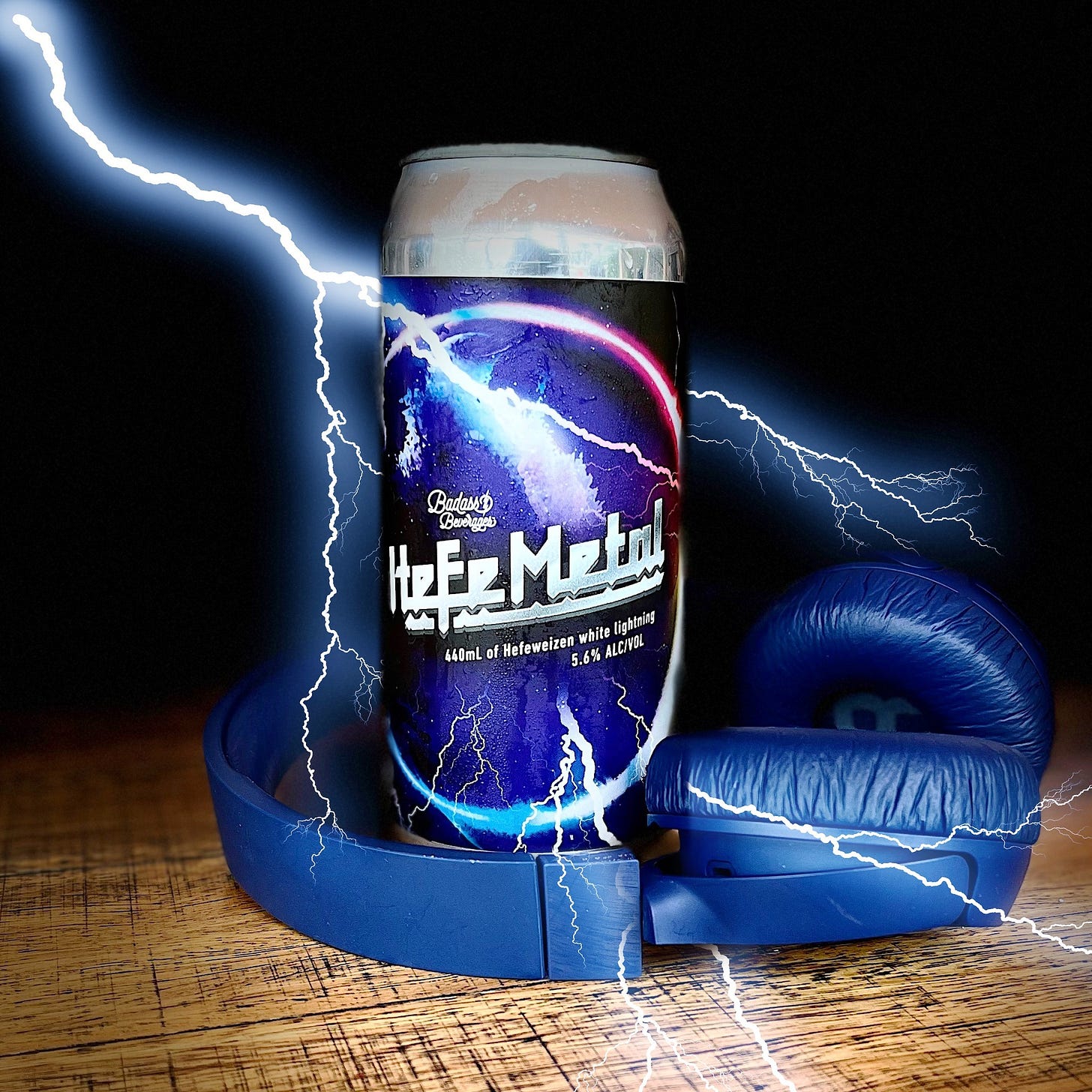
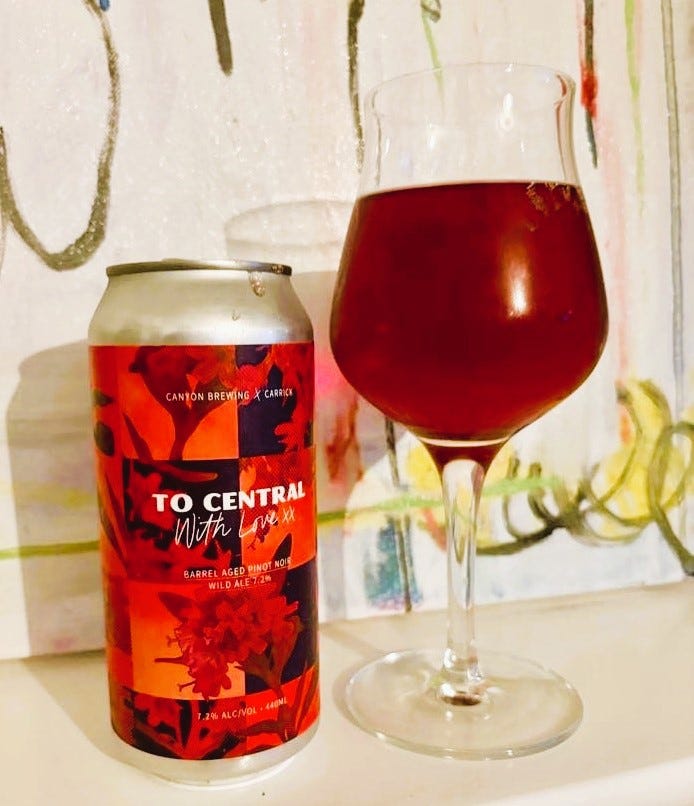
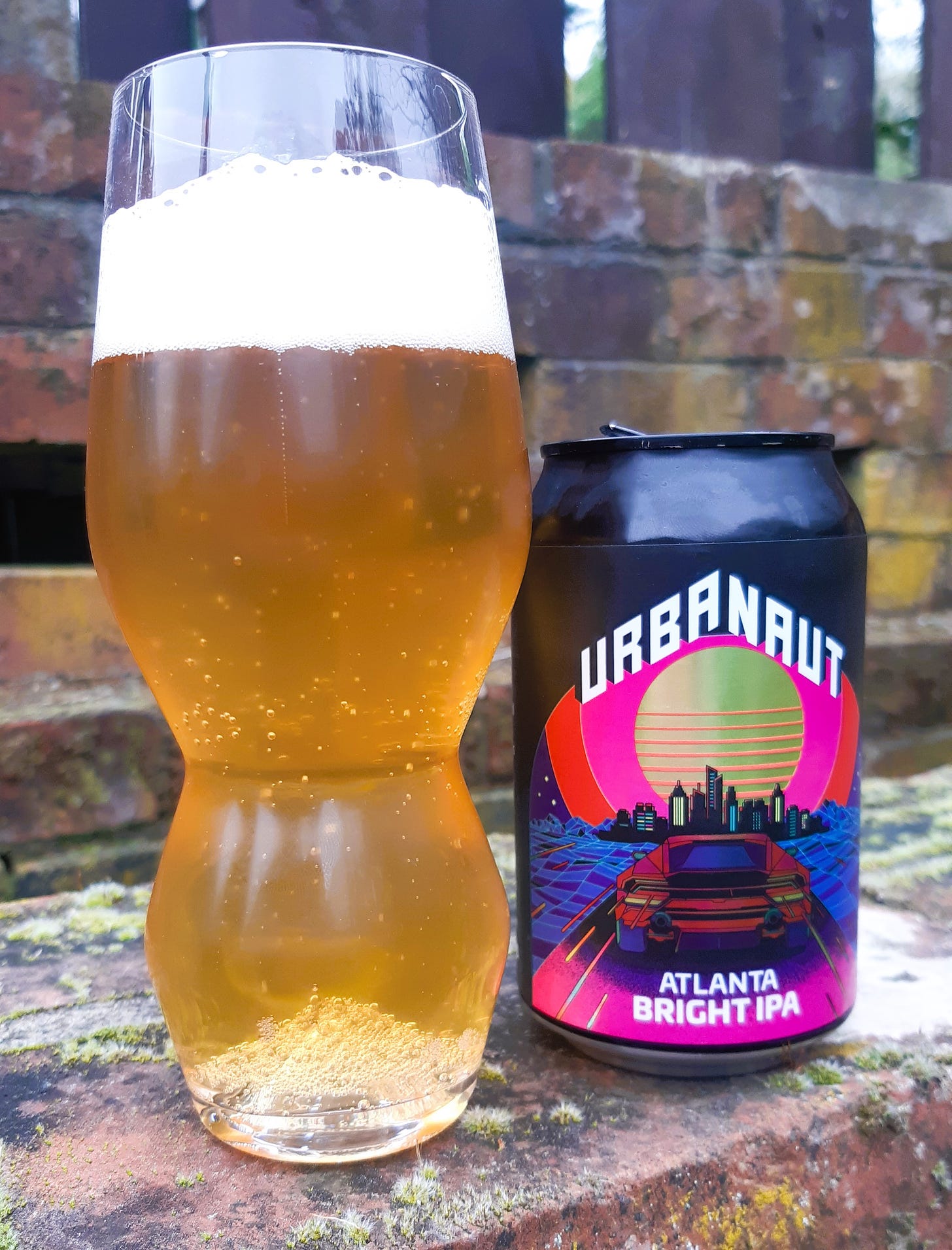
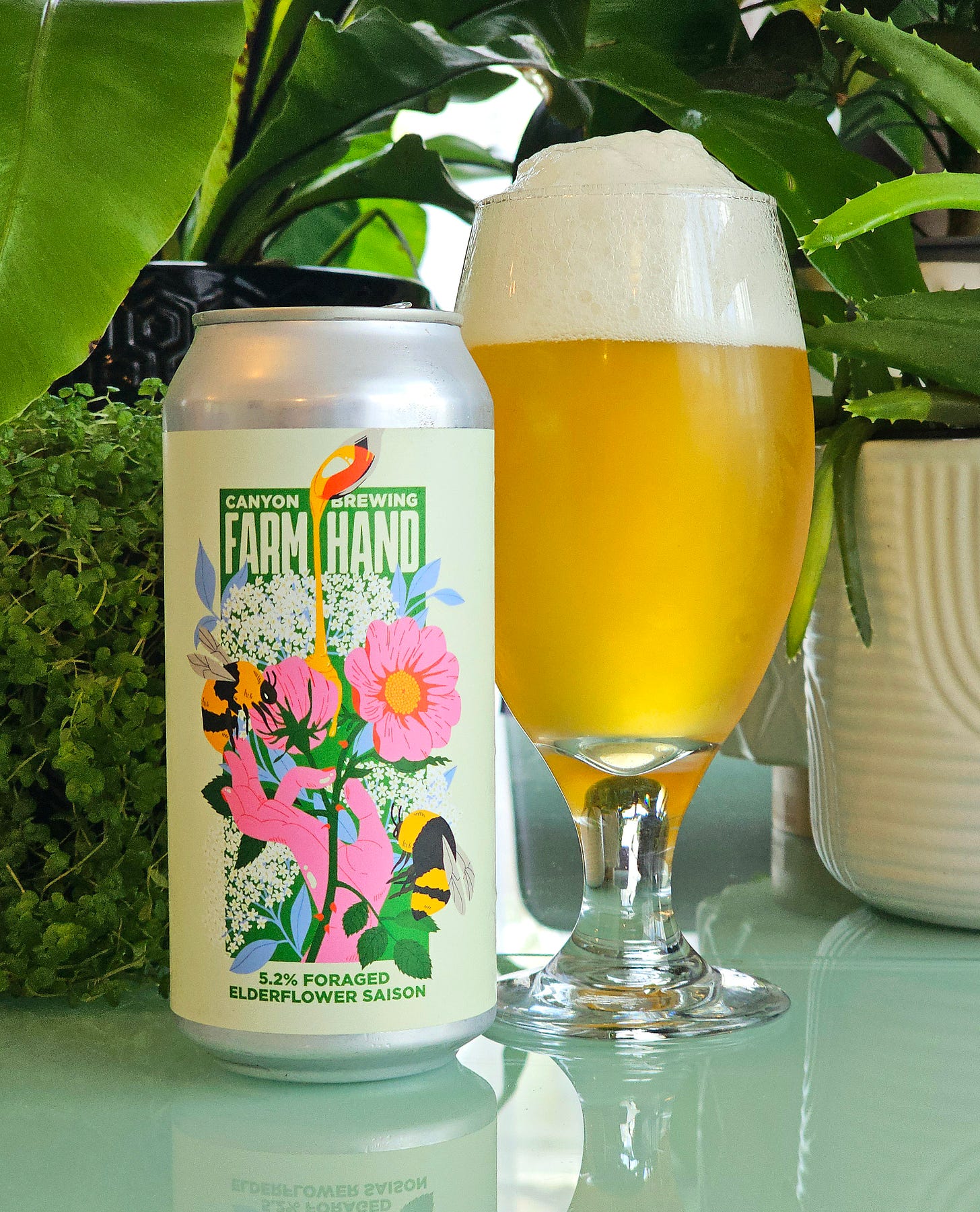
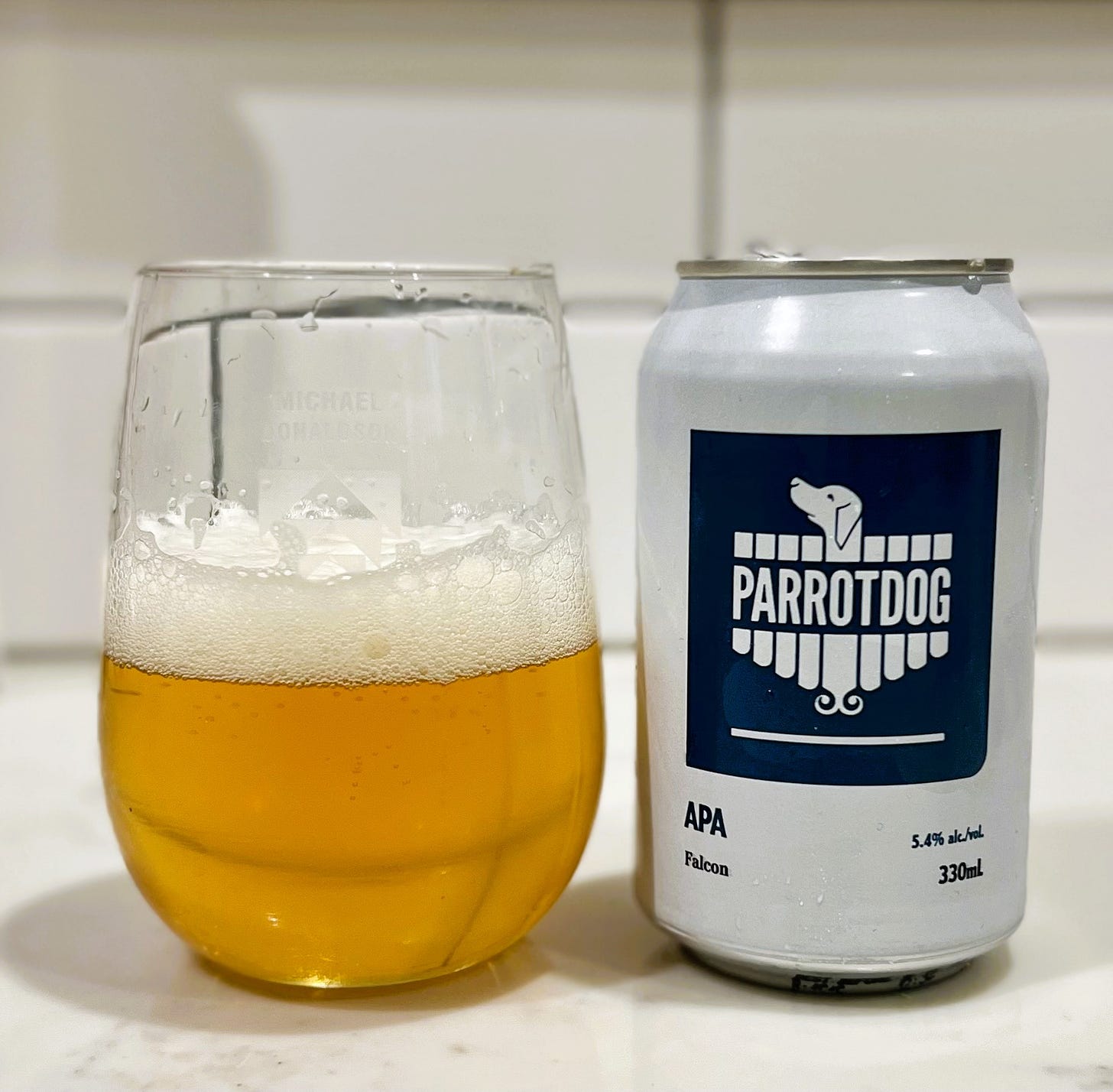
Calling a 4.6% beer an IPA (without the "session" prefix) is a liitle cheeky